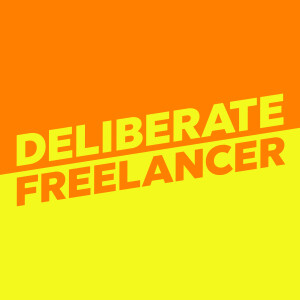
#102: Freelancer Survival Skills + a Pep Talk about Boundaries, with Sarah Townsend
 2021-07-01
2021-07-01
Today’s guest is Sarah Townsend from the city of Gloucester in the UK. Sarah has been a freelance marketing copywriter for more than 20 years and is the author of the #1 Amazon bestseller “Survival Skills for Freelancers: Tried and Tested Tips to Help You Ace Self-Employment Without Burnout.”
Sarah uses clever copy to help businesses become more successful, and she’s on a mission to raise awareness about the importance of mental health and wellbeing for freelancers and the small business community. She does this through talks, webinars and interviews.
When Sarah struck out on her own as a freelancer, she was a 20-something-year-old new mom. She couldn’t find business or personal development books that spoke to her needs. They all seemed to be written for middle-aged men in suits. So, in 2020, Sarah published her own book that addressed the needs that she saw.
“I wanted to create a book that people would love for the support and the reality check and the ‘heart on your sleeve’ telling it like it is side. The book very much focuses on mindset.”
Often, freelancers have the talent and the skills. That’s not what they struggle with. Instead, we struggle with things like isolation, not knowing what to charge, having the confidence to grasp opportunities, procrastination, lack of motivation and imposter syndrome. Those are topics Sarah covers in her book.
Sarah doesn’t agree with a common formula that is recommended freelancers use to determine their income goals. That formula is to take the annual salary you want to earn, subtract several weeks for vacation and sick time and then divide it by the number of weeks and then divide that by the number of days you plan on working. And that is your day rate.
However, Sarah says that formula is a recipe for burnout because it assumes you are getting paid for all of those hours. It doesn’t account for unpaid administrative work, professional development, and marketing and following up.
Sarah says not only are we afraid of failure, but we are also afraid of success. This fear of the unknown holds us back because “I know what I like and I like what I know.” We often like our comfort zone.
She encourages us to think about author Marianne Williamson’s famous quote, which is: “Our deepest fear is not that we are inadequate. Our deepest fear is that we are powerful beyond measure. It is our light, not our darkness, that most frightens us. We ask ourselves, Who am I to be brilliant, gorgeous, talented, fabulous? Actually, who are you not to be? You are a child of God. Your playing small doesn’t serve the world.”
Clients can pick up on a lack of confidence, and that may cause them to ask for a lower rate. And if you agree to that lower rate, you’re perpetuating the “client and supplier” relationship, when you should be aiming to work on a level with your clients that is based on mutual trust, understanding and respect.
If you take on the clients that are wrong for you, those are the ones that sap all your energy and take up more space in your week than great clients do.
Melanie recognized that this spring and summer, as people started to emerge from pandemic lockdown in many countries, freelance business owners seemed to be talking a lot about burnout as we figure out a new way to do things.
Sarah often talks about the importance of mental health and wellbeing for freelance business owners. As she says, “if you’re not taking care of you, you don’t have a business because you are your business and you’ll have nothing left to give.”
Burnout starts on a slippery slope, first with day-to-day stress and anxiety, which can lead to overwhelm, which can lead to burnout. Sarah says freelancers almost take for granted that they’ll always feel stressed and overwhelmed. But, freelancers need to set boundaries and get super clear on their process and then make sure their clients know that process and those boundaries. When you manage client expectations in this way, clients are less likely to micromanage you.
Know what your personal signs of burnout are. For Sarah, it’s when she’s not getting enough sleep and not making time to get outdoors every day.
As you consider how to set boundaries with yourself and your client, consider telling clients what your office hours are. And put your office hours in your email signature.
When it comes to pricing, Sarah charges based on her value, not an hourly or day rate. She explains to clients her billing process. She requires a nonrefundable 50% deposit up front. And when she sends the first draft of the project, she also sends the invoice for the balance of the fee. She said some freelancers fall behind in that because they wait until the client “signs off” on the project.
Sarah talks about removing “should” and “just” from your language and emails.
Biz Bite: Create a Boost Bank (a photo album on your phone of screenshots of positive comments about you)
Resources:
Sarah’s Book “Survival Skills for Freelancers”
Buy “Survival Skills for Freelancers” on Amazon
Sarah on Twitter
Sarah on LinkedIn
Sarah on Instagram
Sarah’s copywriting website
Episode #95 of Deliberate Freelancer: How to Dream Bigger and Transform Your Freelance Business, with Cathy Wilkes
Episode #90 of Deliberate Freelancer: Coping with One Year of COVID-19 Lockdown, with Therapist Emily Derouin
Hiya call blocker app
More Episodes
Create your
podcast in
minutes
- Full-featured podcast site
- Unlimited storage and bandwidth
- Comprehensive podcast stats
- Distribute to Apple Podcasts, Spotify, and more
- Make money with your podcast
It is Free
- Privacy Policy
- Cookie Policy
- Terms of Use
- Consent Preferences
- Copyright © 2015-2024 Podbean.com





